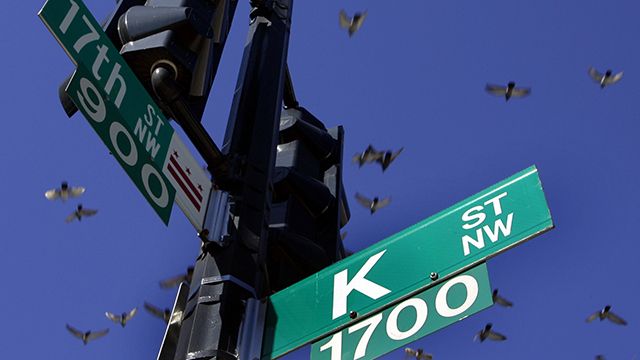
If you’re a regular visitor to BillMoyers.com, you’re already familiar with Washington’s revolving door – legislators and their staff members becoming lobbyists, and vice versa: lobbyists landing jobs on Capitol Hill. But you may not be aware of one of the newer and more questionable perks – those lobbyists receiving six-figure bonuses from their corporate bosses when they fly the coop for lower paying government jobs. To learn more, investigative reporter Lee Fang of The Nation spent days combing through congressional staff disclosure forms in the basement of the Cannon House Office Building and lived to tell the tale. We spoke with him about what he found.
“The real power is often derived at the staff level because they are the ones writing the laws and doing the work,” Fang said. “I think these bonuses provide an incentive for them to be more likely to be friendly, or to at least pick up the phone, when they’re contacted by their former associates.”
“A lot of people study conflicts of interest in Congress — why Congress constantly passes bills that are laden with giveaways and bailouts and special favors for big industry,” he said. “I think there’s a little bit too much of a focus on campaign contributions. There are many ways to curry favor in Congress.”
Congressional staffers can earn as much as $170,000 as a federal employee, but such pay pales in comparison to what many have come to expect on K Street, where top lobbyists earn several million a year. The bonuses, which cut across industries, from defense contracting to broadcasting, and which can amount to several hundred thousand, help staffers to maintain the fixed costs associated with a lobbyist lifestyle.
This is emblematic of the cash culture of K Street, where salaries continue to climb as special interests seek power in Washington, says Jeff Connaughton, a former lobbyist and senior congressional staffer. To Connaughton, who chronicles the influence of big money in Congress in his 2012 book, The Payoff: Why Wall Street Always Wins, bonuses paid to reverse revolving-door lobbyists must be judged on a case-by-case basis. Some, he said, are simply a share of profits earned during the previous year. But in some cases, bonuses are part of an effort by special interests to maintain influence on Capitol Hill.
“It strains common sense that when employers are giving employees who are about to enter government work these huge bonuses, that there isn’t a hope that there will be influence and access,” say Jessica Levinson, a professor at Loyola Law School in Los Angeles, who compared the bonuses to how special interests seek access to politicians using campaign donations. “I think the main gist of the payment is the same,” notes Levinson. “It’s: ‘I hope when I’m pushing a piece of legislation, you’ll remember me with fondness.’” Read more »
Fang also told us his reporting would have been a lot easier if Congress hadn’t repealed part of the 2012 STOCK Act earlier this year. The provision required congressional staff financial disclosure forms to be made available for free online. After voting twice to delay implementation, the House and Senate voted quietly through unanimous consent to repeal the requirement in April. Fang says that’s problematic because it prevents the public from having easy access to records that show the money trail between the public and private sector.

